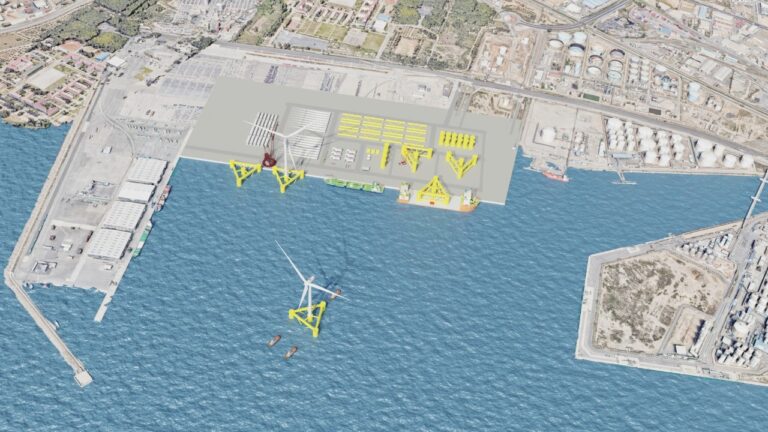The offshore wind industry is experiencing an unprecedented growth, marking a new era of clean energy generation. However, finding professionals with the rights skills set and experience in the offshore wind industry is proving to be increasingly difficult due to the rapid evolution of the sector. The lack of specialized knowledge and specific skills in offshore wind is a barrier that we must overcome soon to harness the full potential of this constantly evolving industry. The deployment of floating wind technology in offshore wind will augment the scale of the challenge since it requires a whole new set of skills and competencies. This is especially true in new offshore wind market, in many of which BlueFloat Energy is a pioneer and is addressing the skill challenge early on.
To address this pressing need and accelerate the growth of offshore wind, we must emphasize the importance of training and education. Offshore wind projects are extremely complex and involve a wide range of capabilities and expertise, including engineering, naval architecture, fabrication, mooring design, project management, environmental impact assessment, project development, offshore installation, interface management, health and safety, quality control, environmental management, operations and maintenance. Building offshore wind farms is just the beginning; ensuring their safe and efficient operation throughout their lifecycle, as well as their social acceptance and integration, demands highly skilled professionals.
I believe that, to meet these demands, it is essential to invest in comprehensive training programs. Collaboration between educational institutions, industry experts, and offshore wind companies is crucial to develop specialized courses and certifications. These initiatives should encompass various disciplines, such as engineering, maritime operations, environmental studies, data analysis, and health and safety protocols.
In addition to formal education, we must foster a culture of knowledge sharing and mentorship within the offshore wind community. Experienced professionals should actively participate in mentoring programs to guide and support emerging talents. Collaboration between industry veterans and new talents not only drives personal growth but also fosters innovation in the sector.
Furthermore, and as is it outlined in this article, it is important to establish scholarship programs, internships, and apprenticeships in collaboration with governmental bodies, industry associations, and private organizations, initiatives that provide practical experience and exposure to the offshore wind sector and serve to inspire and raise awareness about the opportunities in our field.
The growth and success of offshore wind projects depend on a qualified workforce committed to sustainability and the energy transition. By investing in training and education, we equip individuals with the knowledge and skills necessary to make a significant impact in the offshore wind industry.
https://www.hcgroup.global/hc-insider/insights/european-offshore-wind-sector-sees-increase-in-demand-for-talent



